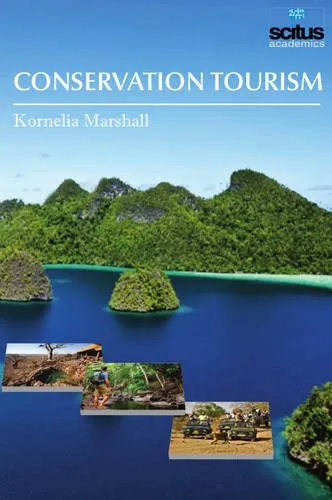Home
|
Products
|
9789356962026

Conservation Tourism | Hardcover
by Kornelia Marshall
Highlights

9781681172477
ISBN

Kornelia Marshall
Author

302
Pages

215 gm
Weight

English
Language

2017
Year

UK Edition
Edition

Hardcover
Binding
₹12249
₹13610
Tourism can signiï¬cantly contribute to environmental protection, conservation and restoration of biological diversity and sustainable use of natural resources. Because of their attractiveness, pristine sites and natural areas are identiï¬ed as valuable and the need to keep the attraction alive can lead to creation of national parks and wildlife parks. Tourism can contribute directly to the conservation of sensitive areas and habitat. Revenue from park-entrance fees and similar sources can be allocated speciï¬cally to pay for the protection and management of environmentally sensitive areas. Sound environmental management of tourism facilities and especially hotels can increase the beneï¬ts to natural areas. But this requires careful planning for controlled development, based on analysis of the environmental resources of the area. Planning helps to make choices between conflicting uses, or to ï¬nd ways to make them compatible. By planning early for tourism development, damaging and expensive mistakes can be prevented, avoiding the gradual deterioration of environmental assets signiï¬cant to tourism. Cleaner production techniques can be important tools for planning and operating tourism facilities in a way that minimizes their environmental impacts. For example, green building is an increasingly important way for the tourism industry to decrease its impact on the environment. And because waste treatment and disposal are often major, long-term environmental problems in the tourism industry, pollution prevention and waste minimization techniques are especially important for the tourism industry. Tourism has had a positive eï¬ect on wildlife preservation and protection eï¬orts, notably in Africa but also in South America, Asia, Australia, and the South Paciï¬c. Many countries have therefore established wildlife reserves and enacted strict laws protecting the animals that draw nature-loving tourists. As a result of these measures, several endangered species have begun to thrive again. This book, Conservation Tourism, focuses on critical engagement with the subject of conservation and tourism, by exploring the wide range of environmental, social and economic impacts.
Online store of medical books
Discover a comprehensive range of medical books at our online store. From anatomy and physiology to the latest clinical guidelines, we've got you covered.
Trusted by students, educators, and healthcare professionals worldwide. Browse top publishers and expert-authored titles in every medical specialty. Enjoy fast shipping, secure payments, and easy returns. Your one-stop destination for quality medical knowledge at your fingertips.
Whether you're preparing for exams or expanding your clinical expertise, our curated collection ensures you have the right resources at hand. Dive into detailed illustrations, case studies, and up-to-date research that enhance your understanding and practical skills.
We regularly update our inventory to include the latest editions and newly released titles, helping you stay current in the ever-evolving medical field. Our advanced search and filtering tools make finding the perfect book quick and hassle-free.
Join our community of lifelong learners and medical enthusiasts. Sign up for exclusive discounts, early access to new arrivals, and personalized book recommendations tailored to your professional interests.
